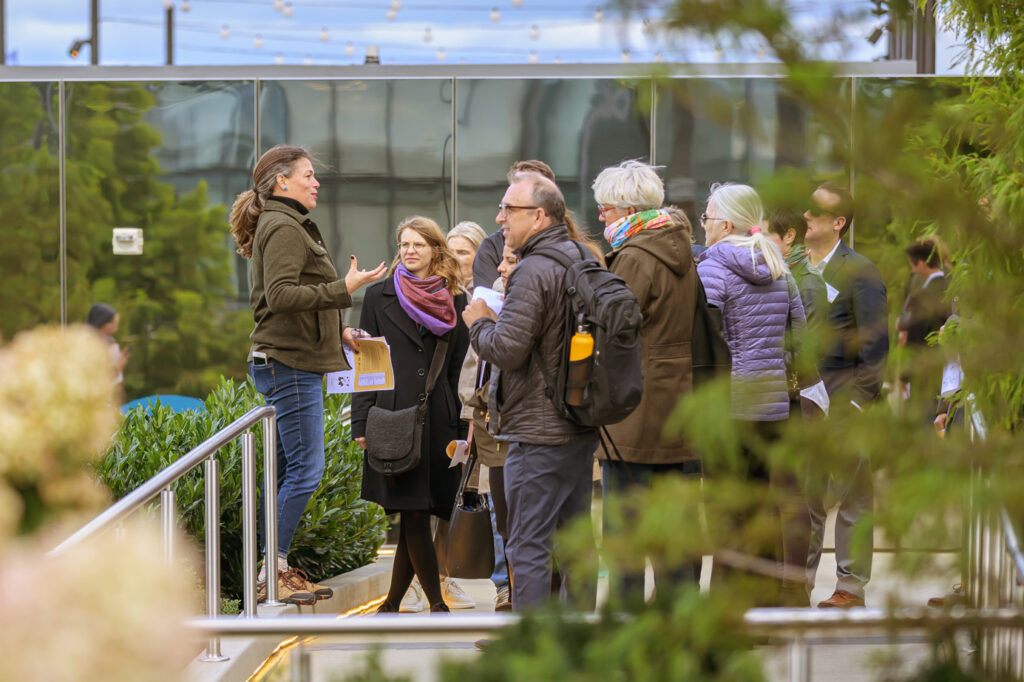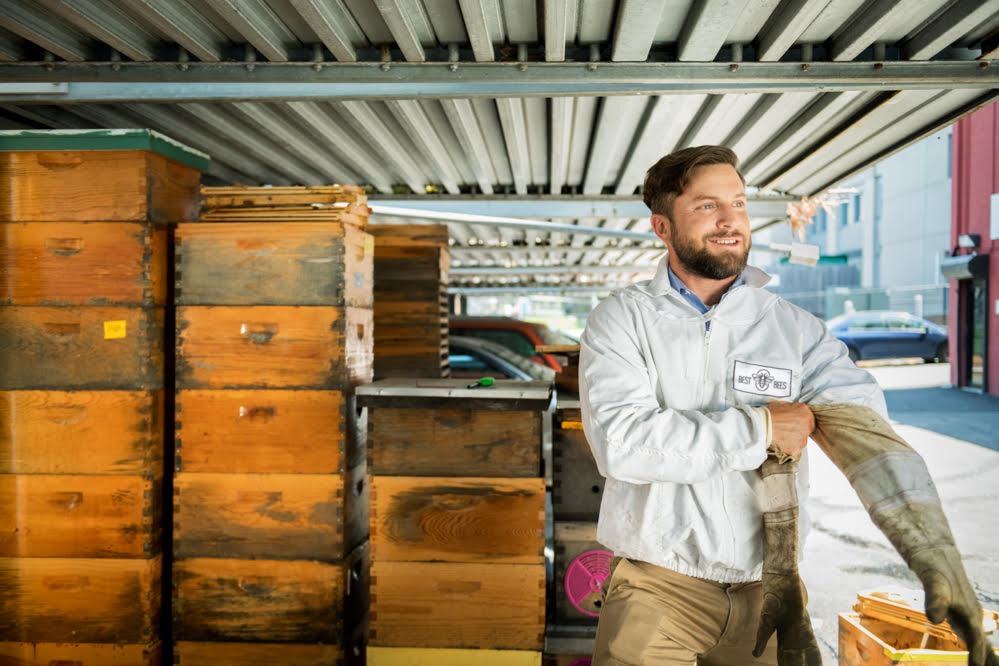(NewsNation) — As offices remain largely empty across the country, one bee scientist is hoping commercial building owners will consider an unusual resident: honey bees.
“Seeing more butterflies and bees and hummingbirds around makes people want to spend their time there,” said Noah Wilson-Rich, CEO and chief science officer at Best Bees, which cultivates bee hives on office and residential buildings.
“That leads to more employee and tenant happiness, which leads to more employee productivity and more tenant occupancy,” he also said. “These are hot green properties.”
After companies agree to host the colonies, Best Bees uses the fees they charge companies to install and care for honey bee colonies to fund research — much of which is publicly available. The goal is to help companies offset their carbon footprint, while contributing data that scientists can use to understand how to help bees thrive.
“It’s a way to reimagine … how we build cities,” Wilson-Rich said. NewsNation spoke with the BestBees founder to talk about how honey bees can help businesses be more sustainable.
This conversation has been edited for length and clarity.
NewsNation: It’s estimated 40% to 50% of honey bee colonies die off each year, and researchers say it’s likely less-studied bees are impacted similarly. But there are a lot of solutions out there that can impact the climate. Why bees?
Wilson-Rich: If you eat food then you need bees, whether you want to admit it or not — and it doesn’t have to be fruits and vegetables. Bees pollinate hay and alfalfa; that’s what supports our entire cattle and dairy industry.
If we care about carbon emissions, then we have to acknowledge that plants take in half of the atmospheric carbon released by human activity. And so, what promotes plants? Well, 80% of the world’s flowering plants are promoted through pollinators. Plants breathe in carbon dioxide and breathe out oxygen for us to have air. So if you breathe air, then you need bees.

With pesticides, diseases, habitat loss and climate change, we still have these areas where bees are doing undeniably well. They tend to be in urban areas, and they tend to be on rooftops.
It’s just changing perspective. Every home, every business, every institution has underutilized assets, and they can be transformed into pollinator habitats.

NewsNation: How does Best Bees work?
Wilson-Rich: For companies that have underutilized space — maybe it’s a lawn, maybe it’s an empty rooftop, maybe it’s a deck — now re-imagine these existing assets. What more can they do with it? People really understand that sustainability drives business. You’re adding value to real estate, and that’s something that helps increase the value of the company.
When a company pays for our beekeeping service, we breed our own bees, and we work with local sources so that the bees are well-established. Then we’ll check in about once a month, and we’ll make sure that these colonies are healthy.
We’re collecting data and reporting that back to the company, too. And we make sure to deliver on that in a way that is really fun. Maybe that’s employee engagement events. Maybe that’s for powering sustainability reports.

NewsNation: But isn’t there a risk that employees or tenets could get stung?
Wilson-Rich: I love that question, because if anybody’s feeling trepidatious like you’ve just described, (having a beehive on site) is creating a culture of openness.
Bees get a bad rap. People often think about wasps and hornets and yellow jackets — those same black and yellow, meat-eater cousins — these are not those. I always say aggressive things are a bad business model. We don’t want to get stung either.
It actually really builds community when people start to learn we need bees to bring us food. Bees help promote plants. Plants help take carbon from the atmosphere — like “OK, we get it. We’re not doing anything with that area of the rooftop anyway, might as well get some pollinators.”
NewsNation: You’re located in 21 regions across the country and collecting a lot of data. What else does your research tell you?
Wilson-Rich: One way that we’ve invented to measure biodiversity, we’ll look at the plant DNA in the honey, just like AncestryDNA or 23andMe. So instead of humans spitting into a tube and the test says, “You’re German,” it’s putting honey in a tube and it says, “This is roses.”
It’s then reported back to say there were actually 342 plant species that the on-campus pollinators promoted this year, and informing employees, tenants or investors. We’re starting to be able to taste our flowers and to build community around it.

It also gives information as climate change occurs and how beekeepers’ actions have changed the biodiversity. Are we losing certain species? Are there more invasive or native species happening?
Sometimes, we can then look at the animal DNA on the plants the honey bees are foraging on. And that gives us a measure of all the different bee species, butterfly species, hummingbirds, moths and bats and birds that have visited there. With that information, it tells us what habitat to preserve for them.






